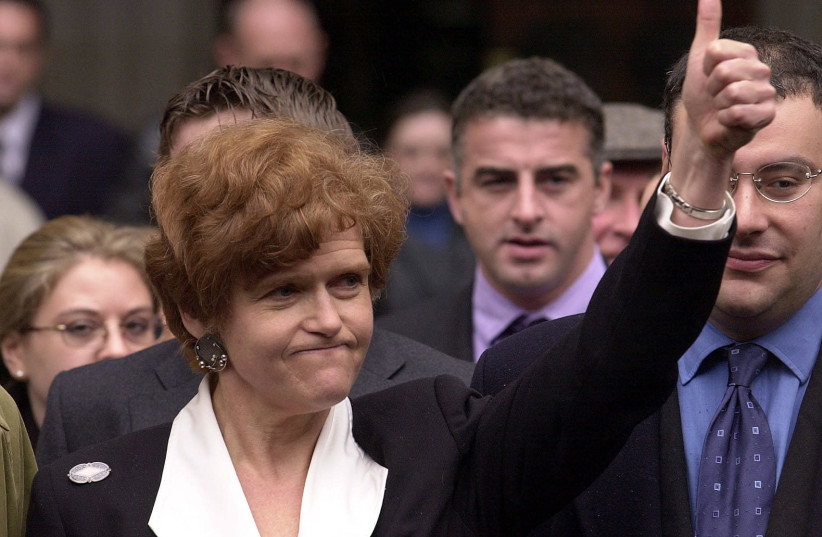WASHINGTON – Antisemitism is not taken seriously, Prof. Deborah Lipstadt said in her first public event since being confirmed by the Senate last month as the new envoy to monitor and combat antisemitism.
In a speech at the US Holocaust Memorial Museum on Thursday, Lipstadt said that “too many people, organizations and institutions do not take antisemitism seriously," charging that “they fail to include it in their litany of legitimate prejudices. They wonder, ‘what is it that Jews are complaining about? After all, they’re powerful. They have no reason to complain.’
"Conversely, too often, when there is an act of antisemitism, those who condemn it cannot bring themselves to focus specifically on this particular prejudice; they condemn antisemitism together with all other acts of prejudice.”
Lipstadt said that “it’s as if antisemitism is not a true outrage and cannot stand alone as something of real concern,” and that “we must acknowledge that antisemitism does not come from one end of the political spectrum. It is ubiquitous, and it is espoused by people who disagree on everything else.”
But this does not mean that all threats are "of equal severity," she stressed. "Sometimes the threat from one group might be more severe than that from another. One of the striking features, however, of this ubiquitous nature of antisemitism is [that] irrespective of where it’s coming from, it relies on the same template of charges.”

Too often, antisemites use Israel as a foil for their antisemitism, she said.
“They camouflage their antisemitism in attacks on Israel: ‘We’re not attacking Jews, we’re criticizing the sovereign state,’ they assure you,” the envoy said.
“Let me state something which the United States government has repeatedly affirmed – criticism of Israeli policies is not antisemitism. But when there is an imbalance in the criticism, a failure to see the wrongs of others, and attributing of blame to only one party and the use of double standards, one is compelled to ask what’s the basis for this imbalance,” Lipstadt said.
”When Jews are denied rights that are accorded to every other group, one is compelled to ask: Why this imbalance? The answer is often self-evident.”
In recent months, Lipstadt said that we have seen antisemitic tropes being utilized “to stir nationalist sentiment and justify a war.”
“Russia’s leaders have repeatedly engaged in egregious Holocaust distortion,” she said. “They justify an invasion with the reprehensible accusation that the Ukrainian leadership” is Nazi sympathizers.
